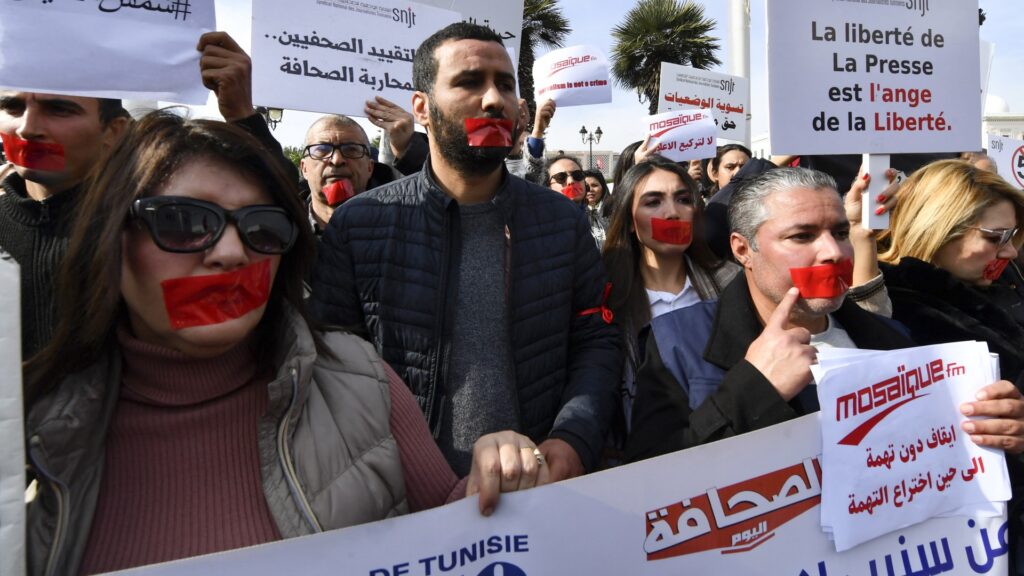In a troubling turn of events, Tunisia’s media landscape is facing unprecedented pressure as the government intensifies its crackdown on dissent ahead of the upcoming presidential election. The departure of veteran journalist Elyes Gharbi from Mosaïque FM’s “Midi Show” after nine years highlights the growing threats against press freedom in the country. Gharbi’s exit follows a year of increasing repression, with authorities stifling critical voices and silencing media professionals.
Human Rights Watch has reported that at least five journalists are currently imprisoned for their work, and the National Syndicate of Tunisian Journalists (SNJT) notes that 39 legal cases have been filed against media workers since May 2023. These actions, including the use of harsh laws like the 2022 cybercrime decree-law and the 2015 counterterrorism law, have led to the imprisonment of prominent figures such as Borhen Bsaies, Mourad Zeghidi, and Sonia Dahmani.
This clampdown is erasing diverse opinions from the media, with popular shows being suspended and political debate disappearing from the airwaves. Public media journalists continue to resist censorship, but the appointment of government-aligned leadership to key media outlets raises concerns about the return of authoritarian practices. As Tunisia prepares for its first presidential election since President Kais Saied’s power consolidation in 2021, the erosion of media freedoms poses a serious threat to the integrity of the electoral process.



